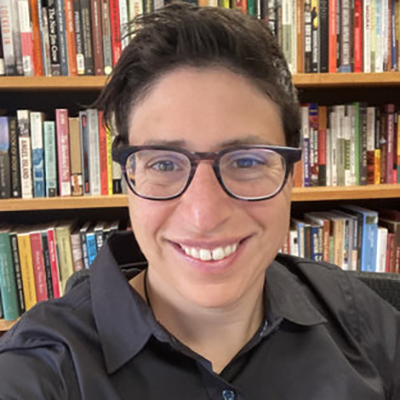'In the Shadow of Liberty' shines light on American immigration history

When the Trump administration's policy of separating families at the country's borders was announced, opposition from the public and the legal community was swift. The outcry and judicial decisions led to a reversal of the administration's stated policy. But detention and family separation have a long history in this country, history professor Ana Raquel Minian says.
Minian, who immigrated from Mexico to the United States right before the attacks of Sept. 11, 2001, has made an academic career studying immigration, incarceration and detention. As a young adult, Minian followed the news of the Guantanamo Bay Naval Base being used to detain people who might be connected to those attacks. But in researching their new book, In the Shadow of Liberty: The Invisible History of Immigrant Detention in the United States, Minian discovered that the base was first used as a detention center under then-President George H.W. Bush to hold Haitian refugees.
Minian uses the personal experiences of four immigrants to walk readers through the history of immigrant detention in the United States: Fu Chi Hao, a Chinese Christian attempting to escape the Boxer Rebellion in 1901; Holocaust survivor Ellen Knauff, a war bride of an American G.I. who arrived at Ellis Island in 1948; Gerardo Mansur, a Cuban who joined the Mariel boat lift in 1979; and Fernando Arredondo, a Guatamalan asylum-seeker who was separated from his daughter by border officials in 2018.
In this episode of The Modern Law Library podcast, Minian shares details of these stories with the ABA Journal’s Lee Rawles. They also discuss the shifting motivations behind changes in the immigration system, parole versus detention and how attorneys can help immigrants currently in detention.
In This Podcast:

Ana Raquel Minian
Ana Raquel Minian is a professor of history at Stanford University and the author of the award-winning book Undocumented Lives: The Untold Story of Mexican Migration, published by Harvard University Press in 2018. They are a recipient of the prestigious Andrew Carnegie fellowship, and their writing has appeared in the New York Times, the Atlantic and Foreign Affairs, among other outlets. Originally from Mexico City, they now live in the San Francisco Bay Area.



